With the explosion of gut health-supporting foods that keep showing up on grocery shelves, or how the hashtag #guttok is trending on TikTok, it is clear that gut health is a hot topic these days. And when it comes to things people do to support the wellness of their gut and digestion, including specific gut health supplements is quite popular.
In fact, the digestive health supplements market generated around 10 billion dollars in revenue in 2022, highlighting just how many people are turning to supplements to support their gut health, the health of their digestive system, and of the balance of bacteria living in their digestive tract.
If you are one of the many people who are sold on the importance of supporting your gut health and are wondering which supplements are actually worth considering as a part of your regimen, keep reading to learn which ones are what we consider to be "the best." Of course, not every supplement will be appropriate for every individual, and it is recommended to get the green light from your health care provider before you start taking any of these options.
Peppermint leaf
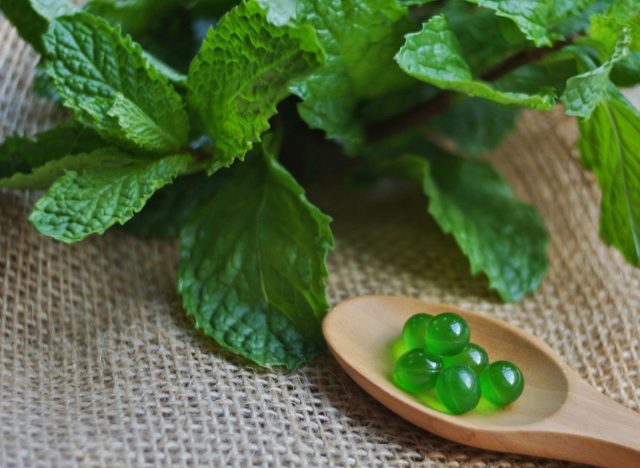
Peppermint has been shown to increase the flow of bile, which helps the body break down fat. Additionally, ingestion of this herb may help relax muscles of the stomach, and this ingredient has specifically been shown to offer positive effects for those with IBS.
Hilma Gas Relief is made with a combination of peppermint leaf and other gut health-supporting ingredients like fennel and lemon balm, making it a nice option for people who want to include these ingredients in their diet.
Ginger root

Ginger root has anti-inflammatory, antitumor, and antiulcer properties – factors that can all support gut health. And along with its nausea relief benefit, some data shows that taking it consistently can inhibit the growth of h. pylori, which is a bacteria that can infect your stomach and may increase your risk of developing stomach ulcers or stomach cancer.
NOW Foods Ginger Capsules provide 250 milligrams of ginger root, and it is 100% vegan-friendly, dairy-free, and soy-free.
Probiotics
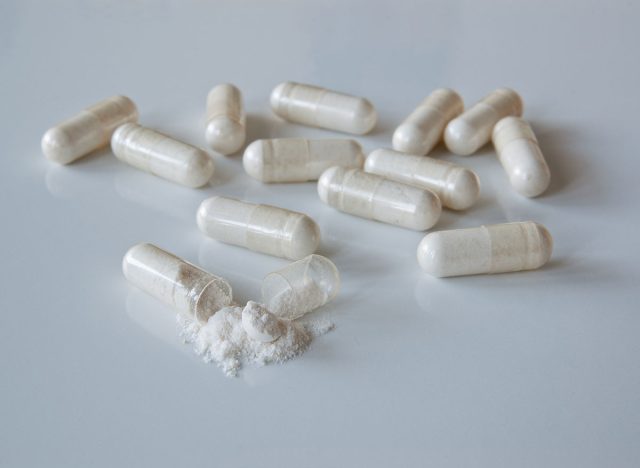
Certain strains of probiotics—or live bacteria—may help support gut health by helping keep the "good" bacterial diversity and balance up-to-par. Some data shows that having an imbalance of "good" and "bad" bacteria is linked to several gastrointestinal diseases, and taking probiotics has been shown to help people have more regular bowel movements.
FLORASSIST Balance Probiotics by Life Extension has seven strains of Lactobacillus and Bifidobacterium probiotics to help colonize the gut. Bonus? This supplement uses dual-encapsulation technology to protect the probiotics during its journey to the intestines.
Prebiotics

While probiotics are an important part of the gut health story, they aren't the only key factor in having a healthy gut microbiome. Prebiotics—or indigestible fibers—act as fuel for probiotics, which can help them thrive in the gut. Prebiotics are also able to affect the pH of the gut, which can, in turn, affect which bacteria will thrive in that environment, as certain "bad" bacteria don't thrive in an acidic environment.
Thorne Prebiotic+ not only contains prebiotic fiber, but it also contains other "bonuses" like green tea extract and pomegranate extract for additional health benefits.
Postbiotics

Now you know about prebiotics and probiotics, but what about postbiotics? The International Scientific Association for Probiotics and Prebiotics (ISAPP) defines a postbiotic as a "preparation of inanimate microorganisms and/or their components that confers a health benefit on the host." Overall, postbiotics may offer some unique benefits when focusing on the gut microbiome, but more data is needed before we can know for sure.
Ritual Synbiotic + contains prebiotics, probiotics, and postbiotics for the gut health-supporting trifecta that may help people who are on their gut health journey.
L-glutamine
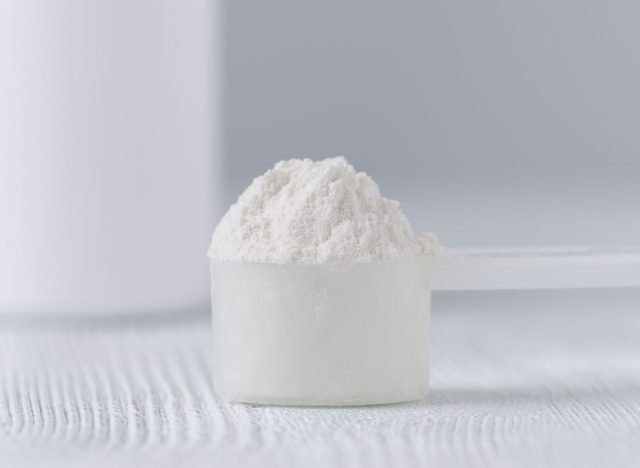
L-glutamine is a non-essential amino acid that becomes essential (AKA your body depends on you to consume enough to meet its needs) during periods of stress. This amino acid is an important part of intestinal cells, and it may help enhance the function of cells in the small intestine. Some data also suggests that it can positively support a healthy balance of gut microbiome, and it helps manage inflammation that may occur in the gut.
Life Extension L-Glutamine provides 500 milligrams of this important amino acid.
Digestive enzymes
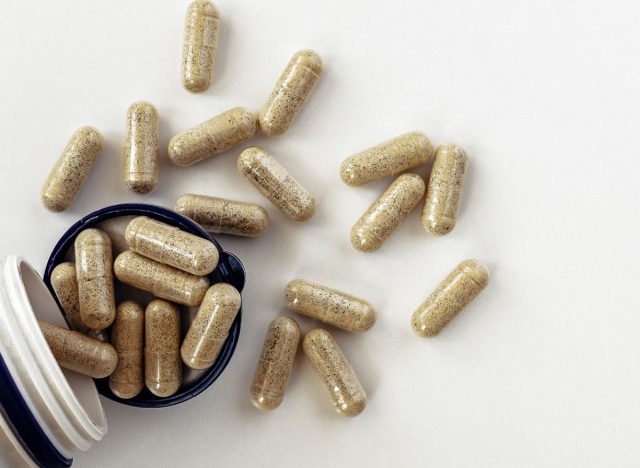
Your body requires certain enzymes to digest food. These digestive enzymes help break down the macronutrients that we eat, and without them, you may experience digestive challenges, such as diarrhea or excessive gas.
Most people produce enough digestive enzymes. But if you do not produce enough, you may benefit from taking a digestive enzyme supplement, like Pure Encapsulations Digestive Enzymes.
Lactase
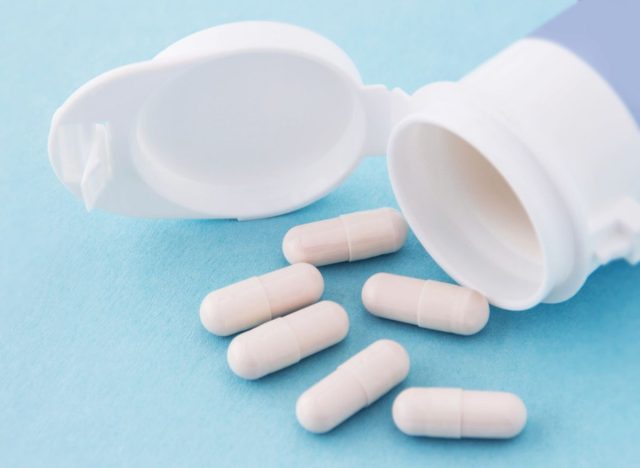
If you have lactose intolerance, you already know all about the bloating and diarrhea that you can often experience after you drink dairy. People with lactose intolerance do not produce enough of the lactase enzyme the body needs to break down the lactose sugar that is naturally found in many dairy foods. But, having lactose intolerance doesn't mean that you have to give up your beloved glass of milk that you enjoy alongside some Oreo cookies. Those with lactose intolerance can opt for lactose-free milk, or they can supply their body with the lactase enzyme via supplementation.
Lactaid is one very popular lactase supplement that can help people manage their symptoms if they have lactose intolerance and they can't do without that delicious scoop of ice cream or creamy cup of cottage cheese.
No comments:
Post a Comment